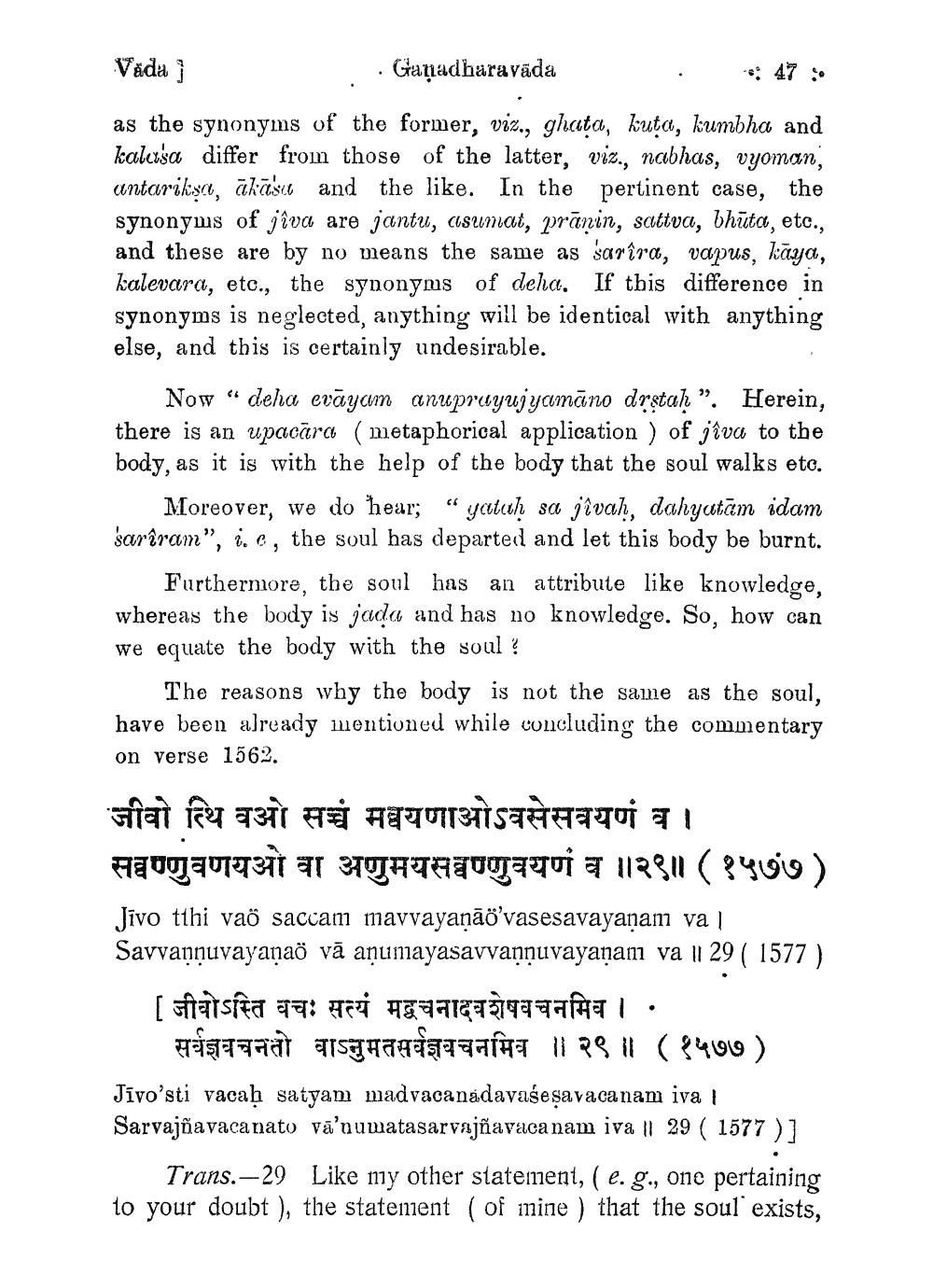________________
Văda}
Gaṇadharavada
as the synonyms of the former, viz., ghata, kuṭa, kumbha and kalasa differ from those of the latter, viz., nabhas, vyoman, antarikṣa, ākāsu and the like. In the pertinent case, the synonyms of jiva are jantu, asumat, pranin, sattva, bhūta, etc., and these are by no means the same as sarira, vapus, kaya, kalevara, etc., the synonyms of deha. If this difference in synonyms is neglected, anything will be identical with anything else, and this is certainly undesirable.
•: 47.
Now "deha evayam anupruyujyamano drstah ". Herein, there is an upacara (metaphorical application) of jîva to the body, as it is with the help of the body that the soul walks etc.
66
Moreover, we do hear; yataḥ sa jivah, dahyatam idam sariram", i. e, the soul has departed and let this body be burnt.
Furthermore, the soul has an attribute like knowledge, whereas the body is jada and has no knowledge. So, how can we equate the body with the soul?
The reasons why the body is not the same as the soul, have been already mentioned while concluding the commentary on verse 1562.
जीवोत्थि वओ सच्चं मवयणाओऽवसेसवयणं व । Azoganašì an Ag4qazogayoi a 112311 ( 3400)
Jivo tthi vao saccam mavvayaṇāö'vasesavayaṇam va Savvannuvayaṇao va anumayasavvannuvayanam va || 29 ( 1577)
[ जीवोsस्ति वचः सत्यं मद्वचनादवशेषवचनमिव । सर्वज्ञवचनतो वाऽनुमतसर्वज्ञवचनमिव ॥ २९ ॥ ( १५७७ ) Jivo'sti vacaḥ satyam madvacanadavaśeṣavaca nam iva | Sarvajñavacanato va'numatasarvajñavacanam iva || 29 (1577)]
Trans.-29 Like my other statement, (e. g., one pertaining to your doubt), the statement (of mine) that the soul exists,




